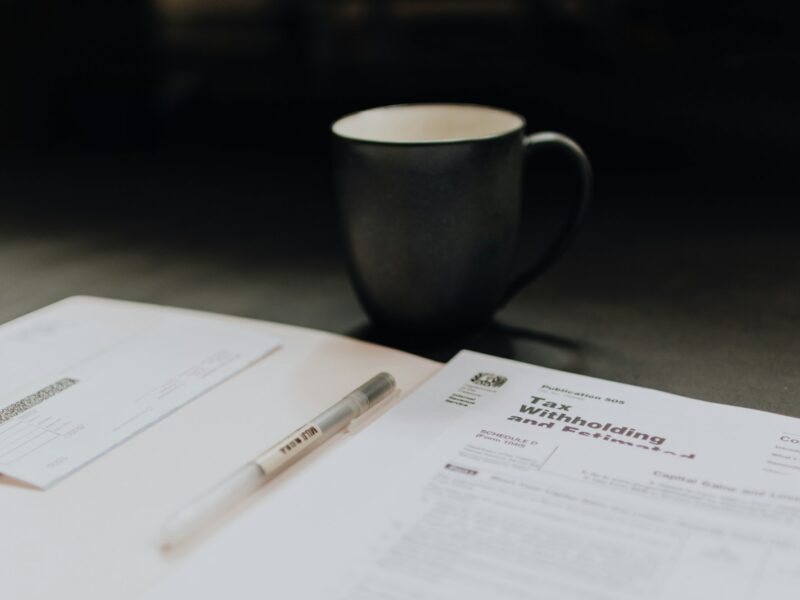Throughout our lives, we will have to make some important decisions that will impact our finances – for some, this may be a simple task, but for others, it can cause worry surrounding whether they are doing what’s best for their situation. There is no tried and tested way to ensure the decision you are making is the best one, however, there are things to consider that can help you to make informed decisions in line with your circumstances.
Sometimes, the best decision for your finances is to ask for help – and with options like short term loans UK, you can apply easily and have access to funds in an emergency.
Track your spending
When it comes to making the best financial decisions for yourself, you are going to need to get to grips with your financial reality. Many of us are guilty of spending without knowing how much we have, regardless of the outgoings we have that week – tracking your spending can help you become more aware of your finances and how you can manage them. Making the right decisions for you relies on you being aware of what best suits your finances, so it is important to keep track and stay on the right path. You can do this easily now with apps available that allow you to track your income and your outgoings easily, whenever you need to. Getting to know how your finances work each month means you will feel less stressed and confused when you need to make a big decision.
Prioritise
Making good decisions with your finances depends on where your priorities lie. For example, if you have a set goal to work towards, whether that’s a new car, house, or retirement, you are more likely to make decisions that will help you towards achieving these goals. If you do not prioritise, or have any goals, you are less likely to make sensible decisions. Start by thinking of what you’d like to achieve with your finances – this could be anything from saving for a larger purchase or paying off outstanding debt. Once you have this goal in mind, it will be easier to make decisions surrounding your money and allows you to be sensible with your hard-earned cash.
Pay off debt
This is one of the best places to start when it comes to making better financial decisions. You may have taken out loans in the past to support yourself – whether you needed help in an emergency, you suffered a period of unemployment, or you didn’t have savings to fall back on. You may not have had a choice when it came to making those decisions in the past, but you do have a choice on how to deal with them now. Prioritise debt repayments so that you don’t have money tied up. This will free up your cash flow – not to mention a load off your mind! You will then be able to make better decisions to work towards where you would like to be when it comes to your money.
Do some research
Doing your research before making a big financial decision can make a huge difference. If you are thinking about buying a new car, you wouldn’t buy one without knowing a little more about it and if it is suitable for what you need it for because you’d be wasting your money!
This works for all types of financial decisions, for example, if you are trying to work out where to invest, learning more about the process is essential to avoid making a loss. If you are comparing and switching energy providers to find a cheaper deal, you’ll need to research what’s on offer from other companies so that you can choose the best deal. Making important decisions can be made simpler with a little bit of knowledge behind them.
Don’t over analyse
When making decisions that can impact your finances, it can seem overwhelming and lead you to overthink. This is called financial paralysis and happens when you are faced with a decision that could have an impact on your money. When you’re faced with a decision like this, many of us would research online for the answers – but there is one major issue with this, it can lead to becoming more confused than when you first began! Yes, having access to knowledge to help you make the right decision is advantageous, but too much information can leave you not knowing where to turn.
It is essential that you try your best not to overanalyse a financial decision. Don’t be hasty and rush into anything, take a minute to think about what you should do, and trust your gut instinct, rather than becoming weighed down with trying to make the perfect decision. After all, being stuck in financial paralysis and doing nothing at all could impact your life and your finances more than a wrong decision might!
Save for emergencies
As we mentioned previously when you are struggling for cash to pay for an unexpected expense, you may end up making poor financial decisions. Saving for an emergency means that you will have access to funds that will not impact your cash flow. For example, if do not have an emergency fund and you are faced with an issue like a broken-down car, or boiler – you may be forced to take out a loan or buy a product in its place that is not as good.
These could both be seen as poor financial decisions as they will have an impact on your income and your credit score. Building up savings that you can use in an emergency makes it easier for you to manage your money – you won’t be forced to take out a loan that would be hanging over you, and you will be able to make the best decisions more easily.



